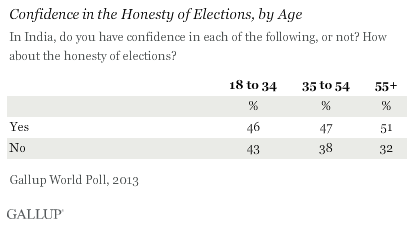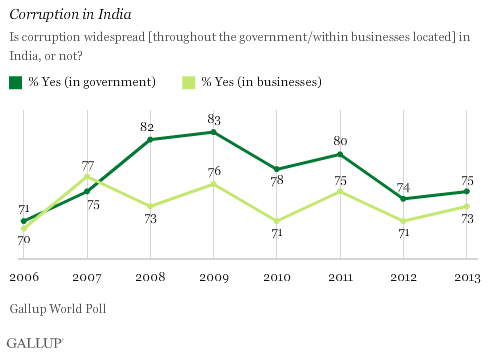43% Indian youth questions election process
WASHINGTON, D.C. – 43% Indian youth is not confident over the corruption free process of the elections, indicates a Gallup International report.
150 million young people are casting their votes for the first time. Nearly nine in 10 Indians living in the North believe corruption is widespread in their government, compared with 65% in the electorally important South.
Young Indians are currently divided in their perceptions of the honesty of elections, with 46% saying they are confident in the process and 43% saying they are not. Older Indians are more likely to say they are confident in the honesty of elections than not.
Confidence in the honesty of elections also varies by region, with the North leading the country in terms of electoral pessimism. Less than a fifth of residents in the North say the electoral system is honest, while majorities in the South (52%), West (64%), East (63%) and central part of India (67%) are more confident. These data were collected prior to the Common Man Party’s late December 2013 victory in Delhi, which led to that new party’s brief but unexpected rule over the capital city. However, these data help show just how restless the northern part of the country was prior to the election.
Most Indians believe corruption is commonplace in government, and a significant percentage believe the current government has not done enough to combat corruption.
A slim majority of Indians (51%) do not believe the current government is doing enough to fight corruption, which could cost the governing Congress party some votes. This includes 54% of 18- to 34-year-olds, who have the potential to be a potent political force because of their numbers.
Regionally, the East gives the Congress party-led government the most credit for fighting corruption; 50% say the government is doing enough to fight corruption, while 26% say it is not. In the North, 80% say the government is not doing enough. These differences could reflect the efforts of local governments in fighting corruption and may not necessarily represent views of the national government, even though the survey question wording specifies “the government of your country.”



